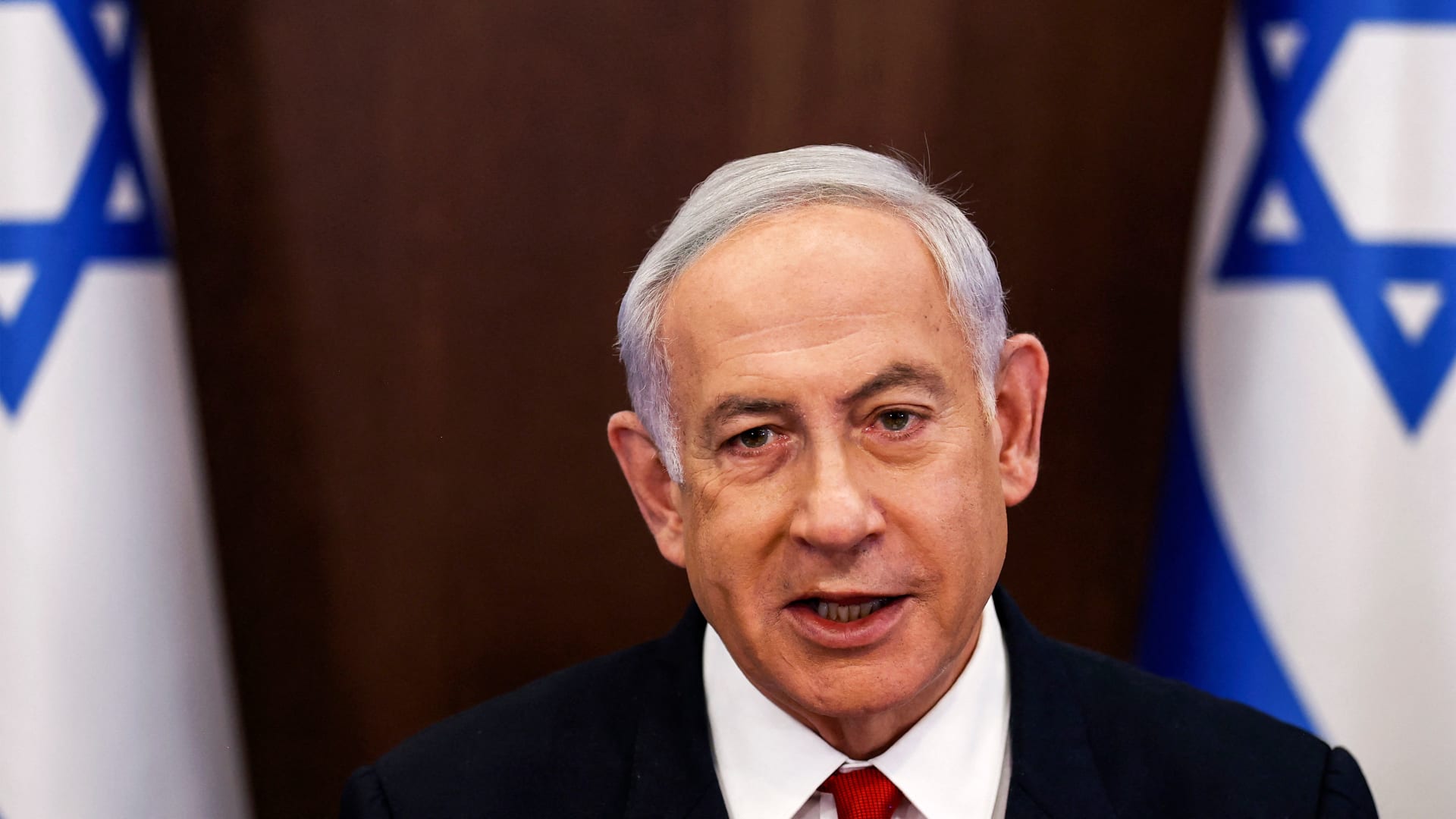Israel PM cautions Saudi Arabia about Iran after China-brokered deal, urges greater U.S. presence
Israeli Prime Minister Benjamin Netanyahu has warned Saudi Arabia against partnering with Iran after a China-brokered deal between the two Middle Eastern powers threatened to undermine his campaign to isolate Tehran.
The détente, according to CNBC, is also a blow to Israel’s attempts to normalise relations with Riyadh. The Saudi-Iran agreement has also been a breakthrough for China, a key ally of Iran and a major trade partner of Saudi Arabia. Netanyahu has also denied any knowledge of a Chinese initiative to mediate the Israeli-Palestinian conflict.
“Those who partner with Iran partner with misery. Look at Lebanon, look at Yemen, look at Syria, look at Iraq,” he told CNBC’s Hadley Gamble in an interview Wednesday, stressing that “95% of the problems in the Middle East emanate from Iran.”
Israel has made progress in connecting with Arab states since the September 2020 Abraham Accords that established relations between Israel and Saudi allies Bahrain and the United Arab Emirates. Sudan and Morocco have also recognised Israel in the years since the accords.
However, Saudi Arabia has so far resisted Israel’s diplomatic overtures. Netanyahu told CNBC that peace with Saudi Arabia could end the Arab-Israeli conflict and pave the way for further diplomacy with Palestinians.
IDF hit Hezbollah in Syria
At the same time, the Israel Defense Forces (IDF) reportedly dropped pamphlets in southern Syria warning Syrian soldiers to stop cooperating with Hezbollah, hours after conducting artillery strikes on sites belonging to the Iran-backed group.
The Times of Israel reports that the flyers appeared to take responsibility for the strikes and stated that the Syrian army would continue to suffer if it continued to cooperate with Hezbollah. The IDF usually does not publicly acknowledge carrying out strikes in Syria, under its policy of ambiguity. In a separate incident, a small Israeli military drone crashed in Syrian territory during routine activity.
Israel has stepped up its activities in Syria recently and has been alleged to have carried out a number of strikes this month, including one that killed two members of Iran’s Islamic Revolutionary Guards Corps.
Assad in the Arab League: What’s the cost?
In a report by The New Arab, the author discusses the cost of the possible return of President Assad to the Arab League,
According to the report, the Syrian regime’s treatment of its people has not changed despite ten years passing since its expulsion. Arbitrary detention and torture of civilians by Syrian security services are prevalent throughout Syria, and on the same day of the Jeddah meeting, the regime shelled areas of northern Syria with artillery.
The region’s treatment of the Syrian regime has changed, however, as states like Saudi Arabia and Jordan have come to view Syrian President Bashar al-Assad as the victor of the country’s civil war.
The lack of a consensus on Syria’s re-entry into the Arab League reveals that even if an increasing number of countries within the region agree that they should normalise with Damascus, they are at odds with how they should go about doing so.
The three countries leading the charge on re-integrating Syria into the regional fold – Jordan, the UAE, and Saudi Arabia – each has vastly different approaches to dealing with Damascus.
Experts have also said that reconciliation with the Assad regime without preconditions of accountability and reforms makes the likelihood of a political settlement unlikely.
“The more you give to Bashar al-Assad without asking for anything in return that would lead to a more acceptable political resolution, the less reason they would have to compromise on anything,” the author said.
Saudi Arabia becomes major Middle East player – analysis
The Jerusalem Post argues that Saudi Arabia’s foreign minister, Faisal bin Farhan, visited Damascus this week in a move to normalize ties with the Syrian regime after a decade of war. This is the first visit of this kind by the Saudis in Syria in 12 years.
The visit follows several other high-level meetings between Saudi Arabia and the Syrian regime, including a visit by Syria’s foreign minister, Fayssal Mikdad, to Riyadh last week.
Riyadh hopes to achieve a comprehensive political settlement to the Syrian crisis soon, rather than waiting a long time, the paper said.
Saudi Arabia is positioning itself as a major diplomatic player in the region and has also reconciled with Iran, sought to end the Yemen war, and hosted several high-level diplomatic visits, it added.
Naturalized Syrians are in the spotlight ahead of Turkey’s upcoming elections
The Middle East Institute published a lengthy analysis of Syrian-Turkish citizens’ role in the Turkish election.
Turkey’s upcoming elections, to be held on May 14, are considered the most consequential elections in the country’s recent history. The elections come as Turkey has become the world’s largest refugee hosting country, with more than four million refugees, mostly from Syria. Over 200,000 Syrians have been granted Turkish citizenship since the Syrian war began.
Despite the numbers, the Syrian community is unlikely to play a significant role in determining the outcome of the elections, but they are at the heart of the vote as migration is a top campaign issue.
The opposition parties have campaigned on an anti-migrant platform, vowing to expel all refugees, shift the national debate, and mobilize voters. The ruling Justice and Development Party (AKP) of President Recep Tayyip Erdoğan has also exploited the refugee crisis, but Syrians see the AKP as their original allies and the best guarantor of the community’s future in Turkey.
However, not all eligible Syrians will necessarily vote for Erdoğan. Facing domestic pressure, Erdoğan has recently been in political dialogue with the Syrian government to pave the way for Syrians to return, which has left Syrians in Turkey stunned, and there is now uncertainty about the safety of the Syrian community regardless of the election’s outcome.


